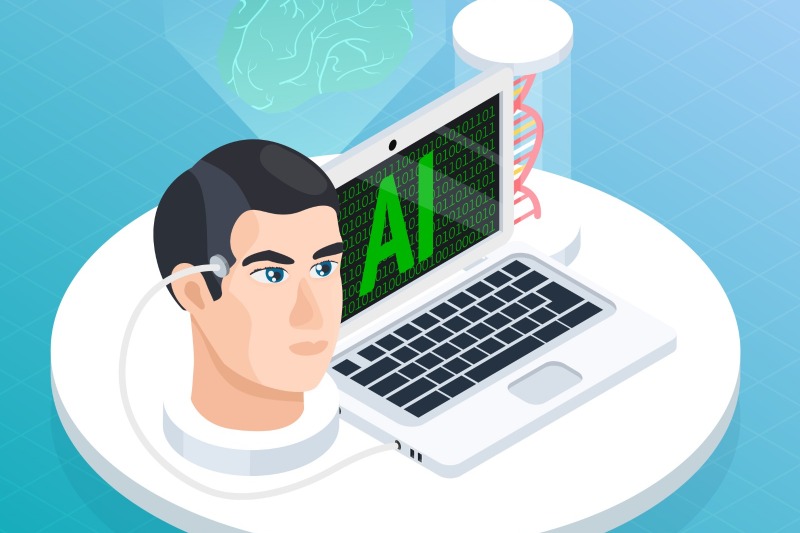Introduction:
Ethics of AI: Progression & Responsibility Artificial intelligence (AI) has advanced significantly over the past several years, altering many facets of our lives. AI systems are transforming industries and driving innovation in sectors ranging from healthcare and finance to education and transportation. However, with such rapid progress, there is an urgent need to address the ethical implications of AI. Balancing progress and accountability is a challenging task that requires careful thought and consideration.
Definition:
Artificial Intelligence involves computers or robots performing tasks requiring human intelligence and judgement.
AI encompasses various disciplines like machine learning, natural language processing, computer vision, and robotics. It researches excels in efficient problem-solving, gaming, medical diagnosis, and financial predictions.
The following are some of the most typical aims of AI research:
- Firstly, the capacity of machines to learn from data and gradually improve their performance.
- Secondly, understanding and producing human language by robots is known as natural language processing (NLP).
- likewise computer vision is essential for a machine to be able to sense and understand its environment.
- In addition, robotics study examines how machines move and interact.
Balancing progress and responsibility is a critical challenge that demands thoughtful consideration:
Providing Transparency and Accountability:
The lack of transparency in decision-making processes is one of the main ethical issues with AI. It gets harder to comprehend how AI algorithms arrive at their findings as they become more powerful and complex. Encouraging AI system openness helps users understand reasoning and biases. Establishing accountability frameworks helps businesses and developers hold AI systems accountable.
Mitigating Bias and Discrimination:
AI systems may unintentionally reinforce existing biases and discrimination in vast data sets due to their data-driven learning. These prejudices may result in biased decisions being made in the hiring, lending, and criminal justice processes. Ethical AI development requires reducing biases and ensuring justice in decision-making. Regular monitoring and addressing AI bias requires developers using algorithmic audits and carefully curating training data.
Security and Privacy Protection:
As enormous amounts of personal data are processed and analyzed by AI systems, privacy protection becomes crucial. It is important to address the ethical considerations surrounding the safeguarding of individuals’ personal information, guaranteeing data anonymity, and gaining informed consent. Afterall, strong security controls must be put in place to prevent criminal actors from abusing AI systems. Striking a balance between the use of data for AI developments and the protection of individuals’ privacy rights is essential to maintain the public’s trust.
Taking Care of Economic Disruptions and Job Displacement:
While AI has many advantages, there are also concerns that technology may displace human labor and lead to increased economic inequality. Specifically, there is a chance that particular work roles would become obsolete as a result of automation and AI-driven technology. To address this issue, the workforce must be proactively retrained and upgraded to adapt to the shifting nature of the labor market. Additionally, fostering a collaborative environment that allows people and AI systems to complement one another’s skills can provide new job opportunities and ensure a fair distribution of rewards.

Ensure human oversight and decision-making:
AI shouldn’t completely take the role of human judgement. Therefore, it is crucial to establish a distinct division of duties and decision-making authority between AI systems and human operators. In order to avoid unexpected repercussions and to intervene when AI systems make unethical or incorrect decisions, human oversight is essential. To achieve this, it is necessary to establish ethical standards and legal frameworks that clearly outline the limits of AI decision-making and promote the advancement of human-centric AI development.
You can check our blogs like- Overview of xAI, Chandrayaan 3, Overview of Podcast and many more.
You also follow our Instagram & YouTube Channel for more information.
Conclusion:
There are many different aspects and challenges associated with the ethical implications of artificial intelligence. Collaboration between technologists, legislators, ethicists, and society at large is necessary to strike a balance between advancement and responsibility. By emphasizing transparency, justice, privacy, and human oversight, we can direct the advancement of AI in a way that optimizes its advantages while reducing potential threats. In the end, it is up to us all to make sure that AI upholds our moral standards and benefits humanity.







Leave A Comment